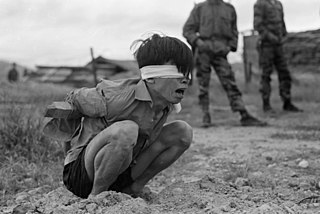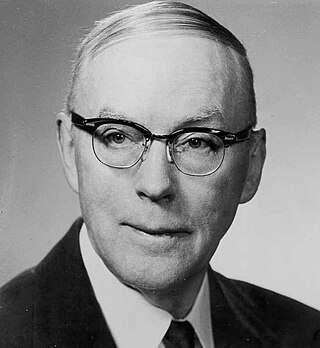Related Research Articles

Torture is the deliberate infliction of severe pain or suffering on a person for various reasons, including punishment, extracting a confession, interrogation for information, or intimidating third parties.
Privatism is a generic term generally describing any belief that people have a right to the private ownership of certain things. According to different perspectives, it describes also the attitude of people to be concerned only about ideas or facts that affect them as individuals.
The private sphere is the complement or opposite to the public sphere. The private sphere is a certain sector of societal life in which an individual enjoys a degree of authority, unhampered by interventions from governmental, economic or other institutions. Examples of the private sphere are family and home.
Nonprofit technology is the deliberative use of technology by nonprofit organizations to maximize potential in numerous areas, primarily in supporting the organization mission and meeting reporting requirements to funders and regulators.
Marketisation or marketization is a restructuring process that enables state enterprises to operate as market-oriented firms by changing the legal environment in which they operate.
In epistemology, and more specifically, the sociology of knowledge, reflexivity refers to circular relationships between cause and effect, especially as embedded in human belief structures. A reflexive relationship is multi-directional when the causes and the effects affect the reflexive agent in a layered or complex sociological relationship. The complexity of this relationship can be furthered when epistemology includes religion.
Organizational effectiveness is a concept organizations use to gauge how effective they are at reaching intended outcomes. Organizational effectiveness is both a powerful and problematic term. It may be used to critically evaluate and improve organizational activities; this is one of its strengths. However, the term has been noted as problematic as it means various things to different individuals. Furthermore, there are alternative methods for measuring organizational performance. Organizational effectiveness embodies the degree to which firms achieve the goals they have decided upon, a question that draws on several different factors. Among those are talent management, leadership development, organization design and structure, design of measurements and scorecards, implementation of change and transformation, deploying smart processes and smart technology to manage the firm's human capital and the formulation of the broader Human Resources agenda.
Sexual capital or erotic capital is the social power an individual or group accrues as a result of their sexual attractiveness and social charm. It enables social mobility independent of class origin because sexual capital is convertible, and may be useful in acquiring other forms of capital, including social capital and economic capital.
The following events related to sociology occurred in the 1980s.

Thomas Nixon Carver was an American economics professor.

George Andrew Lundberg was an American sociologist.
Rachel M. McCleary is a lecturer in the Economics Department at Harvard University and a non-resident senior fellow at the American Enterprise Institute.
Aneesh Aneesh is a sociologist of globalization, labor, and technology. He is Executive Director of the School of Global Studies and Languages at the University of Oregon and a Professor of Global Studies and Sociology. Previously, he served as a professor of sociology and director of the Institute of World Affairs and the global studies program at the University of Wisconsin, Milwaukee. In the early 2000s, he taught in the science and technology program at Stanford University and formulated a theory of algocracy, distinguishing it from bureaucratic, market, and surveillance-based governance systems, pioneering the field of algorithmic governance in the social sciences. Author of Virtual Migration: The Programming of Globalization and Neutral Accent: How Language, Labor and Life Become Global, Aneesh is currently completing a manuscript on the rise of what he calls modular citizenship.

Volunteering is a voluntary act of an individual or group freely giving time and labor, often for community service. Many volunteers are specifically trained in the areas they work, such as medicine, education, or emergency rescue. Others serve on an as-needed basis, such as in response to a natural disaster.

Interrogational torture is the use of torture to obtain information in interrogation, as opposed to the use of torture to extract a forced confession, regardless of whether it is true or false. Torture has been used throughout history during interrogation, although it is now illegal and a violation of international law.
Neo-Marxism is a collection of Marxist schools of thought originating from 20th-century approaches to amend or extend Marxism and Marxist theory, typically by incorporating elements from other intellectual traditions such as critical theory, psychoanalysis, or existentialism. Neo-Marxism comes under the broader framework of the New Left. In a sociological sense, neo-Marxism adds Max Weber's broader understanding of social inequality, such as status and power, to Marxist philosophy.
Paula S. England, is an American sociologist and Dean of Social Science at New York University Abu Dhabi. Her research has focused on gender inequality in the labor market, the family, and sexuality. She has also studied class differences in contraception and nonmarital births.
International volunteering is when volunteers contribute their time to work for organisations or causes outside their home countries. International volunteering has a long association with international development or environment, with the aim of bringing benefits to host communities.
Nan Dirk de Graaf is a Dutch sociologist working in Nuffield College, University of Oxford. He is known for his work on social stratification, religion, political sociology, the impact of social mobility on a variety of social issues, pro-social behaviour, as well as his books.
The Association for Research on Nonprofit Organizations and Voluntary Action (ARNOVA) was founded and incorporated in 1971 by David Horton Smith, with the help of Burt R. Baldwin, Richard D. Reddy, and Eugene D. White Jr. as the Association for Voluntary Action Scholars (AVAS).
References
- ↑ "Christopher Einolf - NIU - Department of Sociology". Northern Illinois University. Retrieved 13 May 2022.
- ↑ Menjivar, Cecilia (2001). "The Mercy Factory: Refugees and the American Asylum System". Journal of Refugee Studies. 14 (4): 449–450. doi:10.1093/jrs/14.4.449.
- ↑ House, Kathryn (2019). "Torture and Lived Religion: Practices of Resistance". Trauma and Lived Religion : Transcending the Ordinary. Springer International Publishing. pp. 15–44. ISBN 978-3-319-91872-3.
- ↑ Haydu, Jeffrey (2010). "Reversals of fortune: path dependency, problem solving, and temporal cases". Theory and Society. 39 (1): 25–48. doi: 10.1007/s11186-009-9098-0 . S2CID 39420656.
- ↑ John Cimprich; Mark w. Johnson (2008). "George Thomas: Virginian for the Union (review)". The Journal of Military History. 72 (3): 924–926. doi:10.1353/jmh.0.0031. S2CID 159706906.
- ↑ George Thomas: Virginian for the Union Luebke, Peter. The Virginia Quarterly Review; Charlottesville Vol. 84, Iss. 2, (Spring 2008): 262.
- ↑ Stowe, Christopher S. (2009). "Review of George Thomas: Virginian for the Union. Campaigns and Commanders". The Journal of Southern History. 75 (3): 802–804. ISSN 0022-4642. JSTOR 27779066.
- ↑ "Rafuse on Einolf, 'George Thomas: Virginian for the Union' | H-CivWar | H-Net". networks.h-net.org. Retrieved 13 May 2022.
- ↑ Post, ECW Guest (2 September 2021). "The Anti-Lee: George Henry Thomas, Southerner in Blue". Emerging Civil War. Retrieved 13 May 2022.
- ↑ Smith, J. D. (2008). "George Thomas: Virginian for the Union. By Christopher J. Einolf. (Norman: University of Oklahoma Press, 2007. xii, 413 pp. $29.95, ISBN 978-0-8061-3867-1.)". Journal of American History. 95 (3): 854–855. doi:10.2307/27694441. JSTOR 27694441.
- ↑ Schumacher, Frank (2016). ""The Shadow of Torture: Debating US Transgressions in Military Interventions, 1899-2008 (Book Review)" by Katrin Dauenhauer & "America in the Philippines, 1899-1902. The First Torture Scandal (Book Review)" by Christopher J. Einolf". Canadian Military History. 25 (2). ISSN 1195-8472.
- ↑ Vestal, Allan (2017). "The First Wartime Water Torture by Americans". Maine Law Review. 69 (1): 1. ISSN 0025-0651.